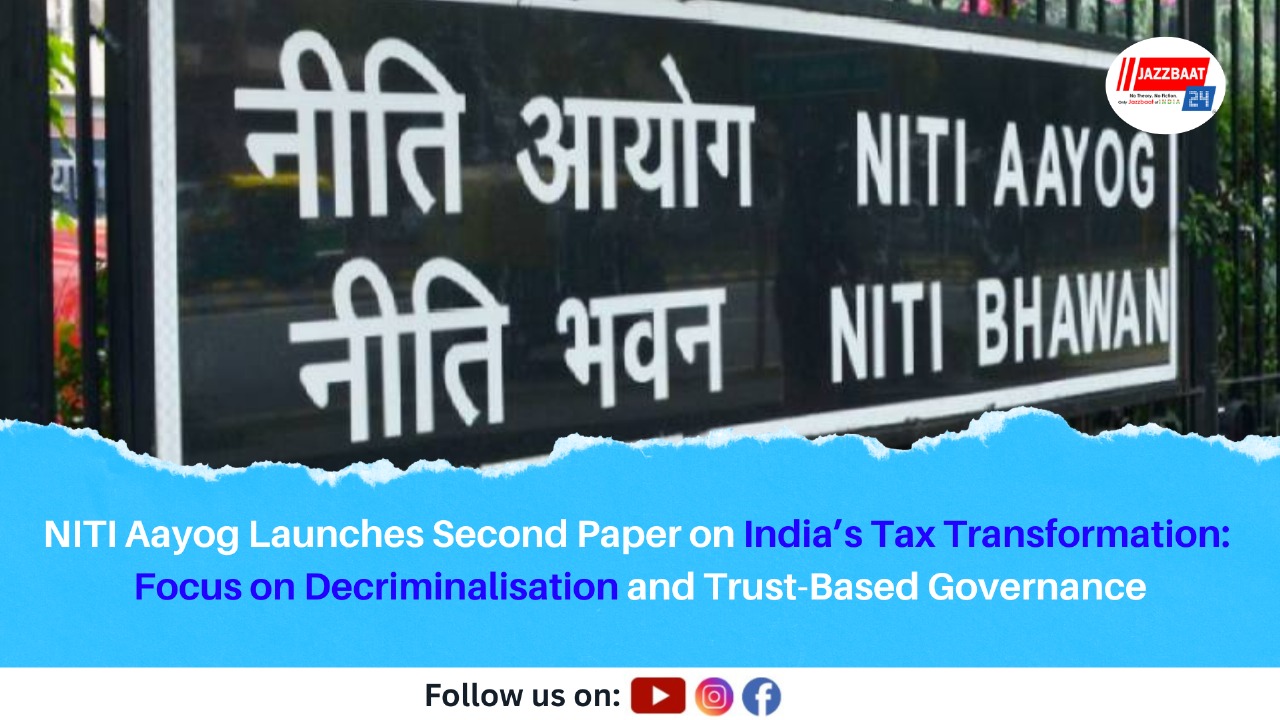New Delhi: The NITI Aayog on Friday released the second working paper under its NITI Tax Policy Working Paper Series-II, titled “Towards India’s Tax Transformation: Decriminalisation and Trust-Based Governance.” The paper marks another step in the government’s push towards creating a simpler, fairer, and more transparent tax system rooted in trust rather than enforcement.
Releasing the paper, Shri B.V.R. Subrahmanyam, CEO of NITI Aayog, said that India’s tax reforms have entered a decisive phase characterised by simplification, modernisation, and a transition towards trust-based administration.
“As India transitions from enforcement-driven compliance to trust-based governance, the focus must shift to proportionate, fair, and transparent enforcement mechanisms that empower taxpayers while protecting fiscal integrity,” he stated.
The new working paper builds on the first in the series, “Enhancing Certainty, Transparency, and Uniformity in Permanent Establishment and Profit Attribution for Foreign Investors in India,” and presents a comprehensive assessment of criminal provisions under the Income-tax Act, 2025. It evaluates the necessity, proportionality, and alignment of these provisions with the broader reform agenda aimed at reducing criminalisation in economic laws.
According to the paper, while the 2025 Act has removed several outdated offences, it still criminalises 35 actions and omissions under 13 provisions, many of which prescribe mandatory imprisonment. Using a jurisprudence-based assessment, the study proposes a calibrated roadmap for decriminalisation, including: Eliminating imprisonment for minor or procedural defaults, Restricting criminal penalties to cases of fraud or wilful tax evasion. And Enhancing the use of civil and administrative sanctions in place of criminal prosecution.
The paper further recommends a principle-based framework for rationalising punishments, encouraging judicial discretion, and aligning enforcement with global best practices.
The CEO underscored that these reforms would reduce litigation, boost investor confidence, and promote India’s commitment to a predictable and trust-based tax environment. He added that decriminalisation would help shift the compliance culture from fear to cooperation, ultimately strengthening voluntary tax adherence.
The release event saw participation from representatives of CBDT, CBIC, ICAI, DPIIT, and leading tax experts from Vidhi Legal, Lakshmikumaran & Sridharan, Deloitte, and EY, all of whom collaborated with the NITI Aayog Consultative Group on Tax Policy (CGTP), led by Dr. P. S. Puniha and Shri Sanjeet Singh.
The working paper concludes that embedding trust at the core of tax governance will enhance compliance, optimise enforcement resources, and contribute to India’s ambition of becoming a globally competitive, high-trust economy.
